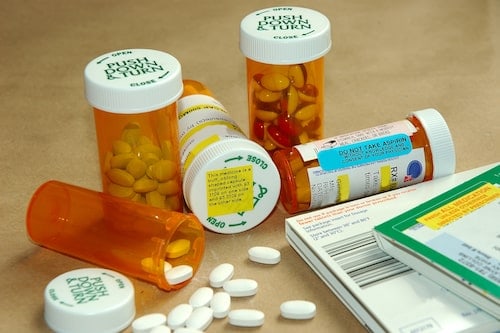Beware These Common Food and Drug Interactions
September 1, 2018
Nearly half of all seniors in the United States take five or more medications in a single day. With this increase of medications or substances entering the body comes a greater chance for those medications to interact with both each other and the food you eat. Because of this, it is important to be aware of which food and drug combinations can have a negative effect on your health. Additionally, herbal and non-herbal supplements may pose a risk to us if not considered before beginning a new medication or increasing the dosage of an existing one.
Common Food and Drug Interactions to Avoid
As you age, the amount of medications and supplements you take daily tends to increase. Due to this, learning which foods may adversely interact with the medications we take is imperative. Some foods may cause medications to be ineffective, while others may increase the dosage of a drug.
Nutrition and diet expert, Madelyn Fernstrom and award-winning pharmacologist, John Fernstrom wrote the book, Don’t Eat This If You’re Taking That, where they go into detail on how certain foods and medications interact. Here are some common food and drug interactions to avoid.
Grapefruit Juice
This yummy drink can cause a variety of issues if consumed while taking certain types of drugs. Although research has yet to discover exactly why, grapefruit juice has been known to increase the dosage of several medications. The list of medications effected by grapefruit juice includes: anti-seizure medications, antidepressants, benzodiazepines, calcium channel blockers, anti-arrhythmic drugs, pain medications, and impotence drugs. So, if you are taking any medications, it may be best to either avoid grapefruit juice, or have a conversation with your medical provider before consuming.
Dairy Products and Calcium Supplements
Dairy products are rich in calcium, which can work against medications meant to lower blood pressure. Medications for high blood pressure contain something called calcium channel blockers, which help lower blood pressure. Consuming a lot of calcium can work against these medications. If you are on high blood pressure medication, it is best to keep to a diet of 1,000 milligrams or less of calcium each day.
Spinach and Leafy Greens
One of the seemingly healthy and innocuous items on the list, spinach and leafy greens, may interfere with blood thinning medication. These healthy foods contain high levels of vitamin’s K and E, both of which work with your body to increase blood-clotting compounds and counteract the effectiveness of blood thinning medications. If you’re on a blood thinning medication, be sure to limit your intake of these types of foods to avoid complications.
Fish Oil
Having the opposite effect of spinach and leafy greens mentioned above, fish oil is another supplement to avoid when taking blood thinning medication. This is due to the fact that fish oil acts as a natural blood thinner, meaning taking it in addition to a medication may thin your blood too much and lose the ability to clot properly. Fish lovers shouldn’t worry though, the amount of fish oil found in fish eaten in a regular diet is minimal and shouldn’t impact your medication. But as always, we suggest talking with your physician prior to consumption to be sure.
Cinnamon
Diabetes sufferers should be wary of ingesting too much cinnamon. Cinnamon naturally lowers blood sugar. With diabetes mediations meant to do the same, you run the risk of lowering your blood sugar too far when consuming cinnamon in addition to your medication. When taking medication for blood sugar regulation, try to keep your cinnamon intake to a dusting or so for flavor.
Alcohol
With all the warnings on our medications and in advertising, we should by now be aware that medications and alcohol consumption don’t mix. Those taking antidepressants should be especially wary. Monoamine oxidase inhibitor (MAOI) antidepressants block the breakdown of the enzymes in alcohol that can cause an unhealthy increase in blood pressure. Additionally, if you are taking medication for Parkinson’s or taking acetaminophen, such as Tylenol, you should avoid alcohol consumption.
A Word of Caution
As noted above, taking a new medication without first seeing how it may interact with your current lifestyle can be dangerous. Although this lists a few of the more prominent interactions to avoid, these are not all. When a new medication is added to your regimen, be sure to ask your doctor about how it may interact with what you are already taking and the foods you consume.
Live the Healthy Life You Love at The Oaks at Denville
The Oaks at Denville is equipped with highly-trained staff ready to help you navigate the ins and outs of your medications. Our staff is there for you, mind, body and spirit, to help you live your best life. With beautiful independent living options, a variety of life-enhancing amenities and our innovative LivWell program, you’ll have everything you need to thrive while staying safe and healthy.
Contact us today to learn about our vibrant continuing care retirement community in Denville, New Jersey.




